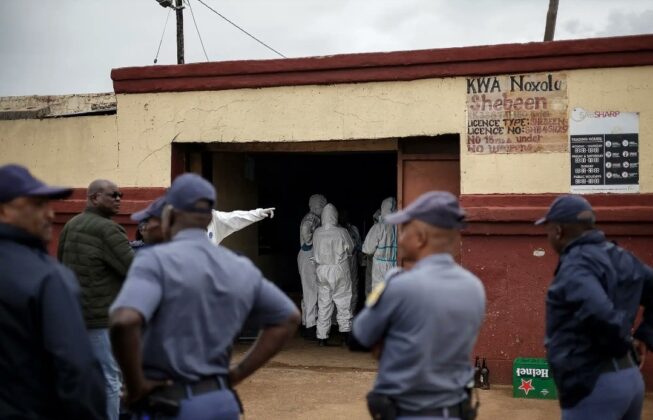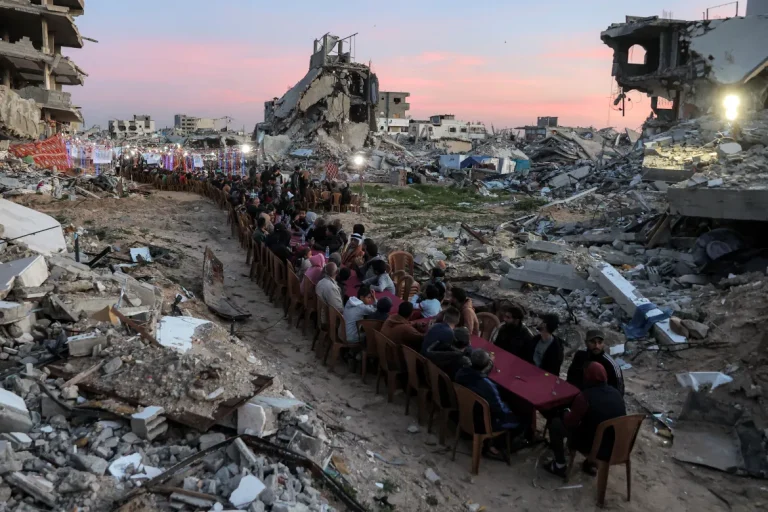
Polish leadership and NATO discuss the application of Article 4, after Russian drones violated Poland's airspace. Image; Euronews.
(The Post News) -Poland invoked Article 4 of the NATO treaty on Wednesday when nearly 20 Russian drones crossed into its territory during Moscow’s biggest air raid on Ukraine since the beginning of the war. The record intrusion prompted consultations between NATO ambassadors in Brussels and was the first direct military confrontation between Polish and NATO forces and Russian forces since February 2022.
The Polish armed forces reported its F-16 fighter jets, supported by Dutch F-35s and Italian AWACS surveillance aircraft, shot down many drones overnight. Polish Prime Minister Donald Tusk told Parliament that 19 attempts were made between 11:30 p.m. Tuesday and 6:30 a.m. Wednesday.
This was an aggressive act that posed a direct threat to the security of our citizens,” the Polish operational command said. One of the drones struck a residential complex in the town of Wyryki, in eastern Poland, but no injuries were reported. Four airports, including Warsaw’s Chopin Airport, were closed temporarily, and residents in the eastern regions were asked to take shelter.
Poland’s “Closest to Conflict Since WWII”
Tusk defined the event as a “massive provocation” and cautioned that Europe is in its worst danger in the past decades. “There is no reason to declare that we are at war… but the situation is much more dangerous than all of our previous ones,” he said. “The possibility of a large armed conflict is closer than ever before since the Second World War.” Despite mounting tensions, Tusk guaranteed that Poland does not have any plans to escalate the situation on its own.
The accident led Poland to officially invoke Article 4 of the NATO treaty, under which the member countries can request consultations whenever they feel their security is threatened. “Article 4 is there to facilitate better coordination and awareness inside the alliance,” says Bob Deen, an analyst with the Clingendael Institute in The Hague. “It is not necessarily a prelude to Article 5.”
Article 5, NATO’s collective defense guarantee, has been invoked but once, after the September 11, 2001, terrorist attacks on the United States. Poland had previously invoked Article 4, most recently in February 2022 with seven other allies after Russia’s invasion of Ukraine.
EU leaders condemned the drone incursions and stood in solidarity with Poland. The EU’s top diplomat, Kaja Kallas, referred to the event as “the most serious Russian war crime in Europe since the start of the war.” She urged allies to “add the cost on Moscow, enhance backing for Ukraine, and invest in Europe’s defense.”
EU Defence Commissioner Andrius Kubilius called for building a “testosterone wall” along the eastern edges of Europe, warning Russia was testing the mettle of NATO.
Ukraine Warns of Escalation
Ukrainian President Volodymyr Zelenskyy suggested that Russia’s strike with 415 drones and 42 cruise missiles across 15 Ukrainian regions aimed to “test the boundaries of what is possible.”
“If Russia does not receive a decisive response, it remains at the new level of escalation,” Zelenskyy said. The drone attacks followed days when Russia and Belarus would initiate huge Zapad “West” war exercises near the Polish border. The war exercises will involve thousands of troops, tanks, and aircraft, with Belarus mentioning nuclear scenarios.
Poland announced it would seal its border with Belarus in advance of the war exercises. For the moment, allies in NATO have pledged to ramp up monitoring along Poland’s eastern frontier but did not take the step of triggering Article 5. Diplomats say the incident highlights the risks of Russia’s war spilling over into the space of the alliance.
“We are ready to defend ourselves against such provocation,” said Tusk. “All our allies take the situation very seriously.”



